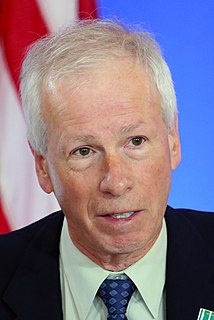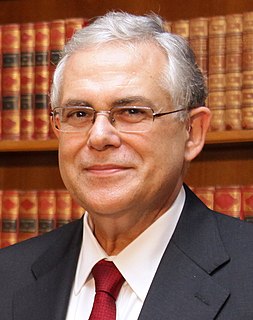A Quote by Bernie Sanders
Country must confront what he called institutional racism. [We should] create a country which provides economic, social and environmental justice for all.
Related Quotes
One of the ongoing crises in America is institutional racism. We have a very broken criminal justice system. We live in a country where there are more people in jail than any other country on Earth. There are some 2.2 million people currently incarcerated and they are disproportionally African American and Hispanic. Unarmed African Americans have been abused and sometimes killed while in police custody. Clearly these are issues that must be dealt with and changed.
For most Black people there is still poverty and desperation. The Ghettos still exist, and the proportion of Blacks in prison is still much greater than Whites. Today, there is less overt racism, but the economic injustices create an "institutional racism" which exists even while more Blacks are in high places, such as Condoleeza Rice in Bush's Administration and Obama running for President.
The struggle to create a nation and world of economic and social justice and environmental sanity is not an easy one. The struggle to try and create a more peaceful world will be extremely difficult. But this I know: despair is not an option if we care about our kids and grandchildren. Giving up is not an option if we want to prevent irreparable harm to our planet.
I worked when I was Congress on a second chance act. We have got to do a better job recognizing and correcting the errors in the system that do reflect on institutional bias in criminal justice. But what - what - what Donald Trump and I are saying is let's not have the reflex of assuming the worst of men and women in law enforcement. We truly do believe that law enforcement is not a force for racism or division in our country.






























